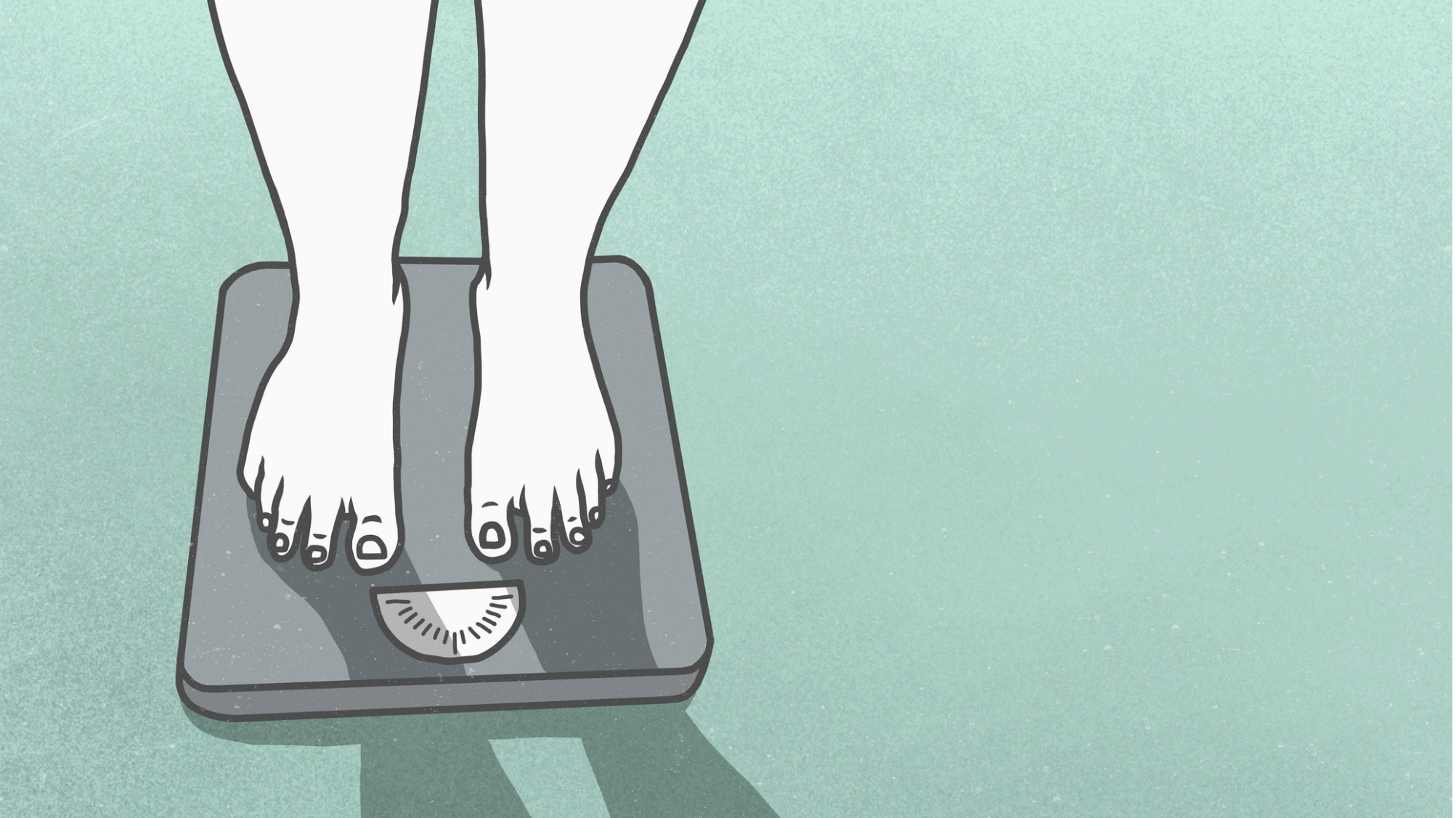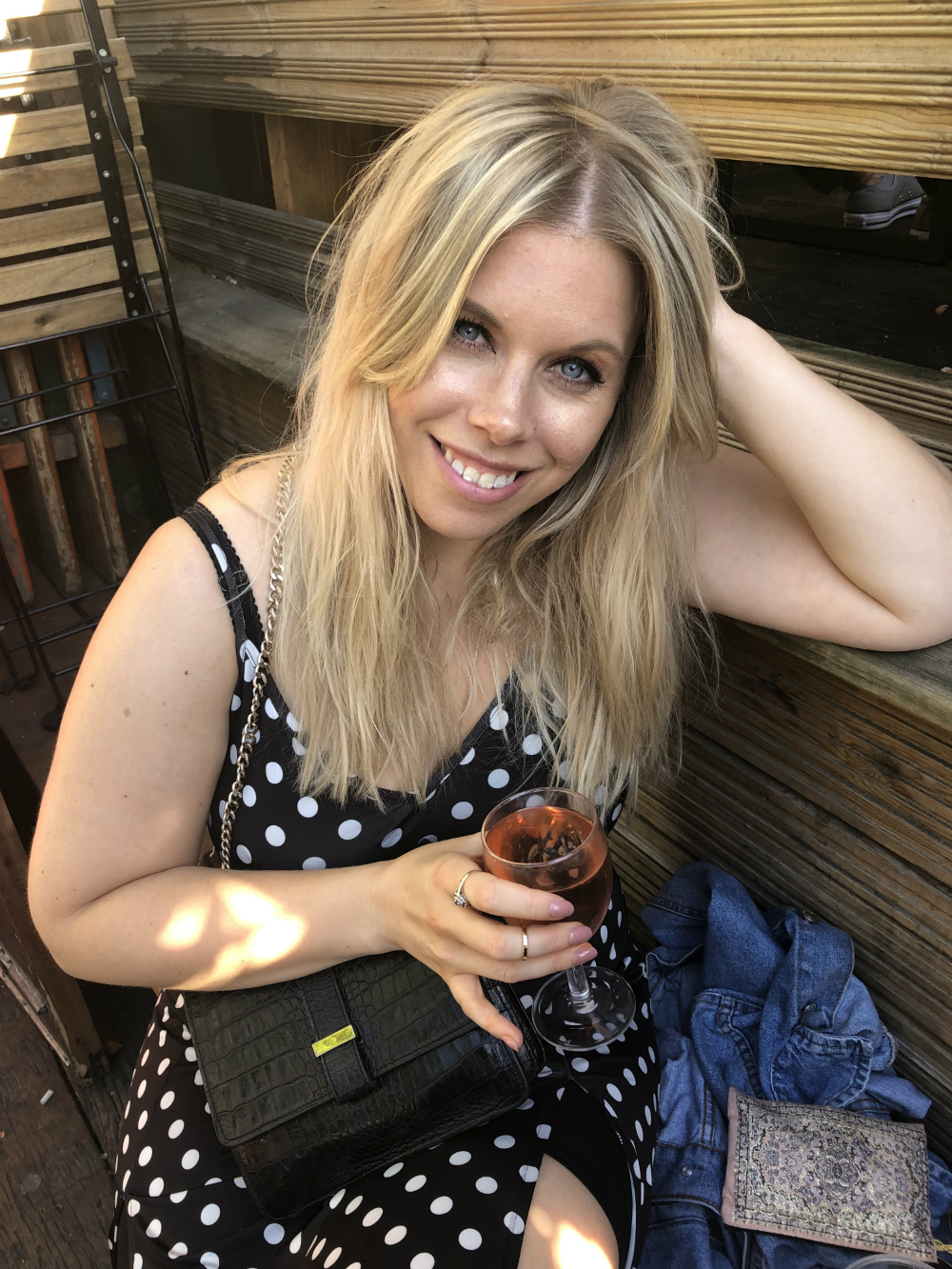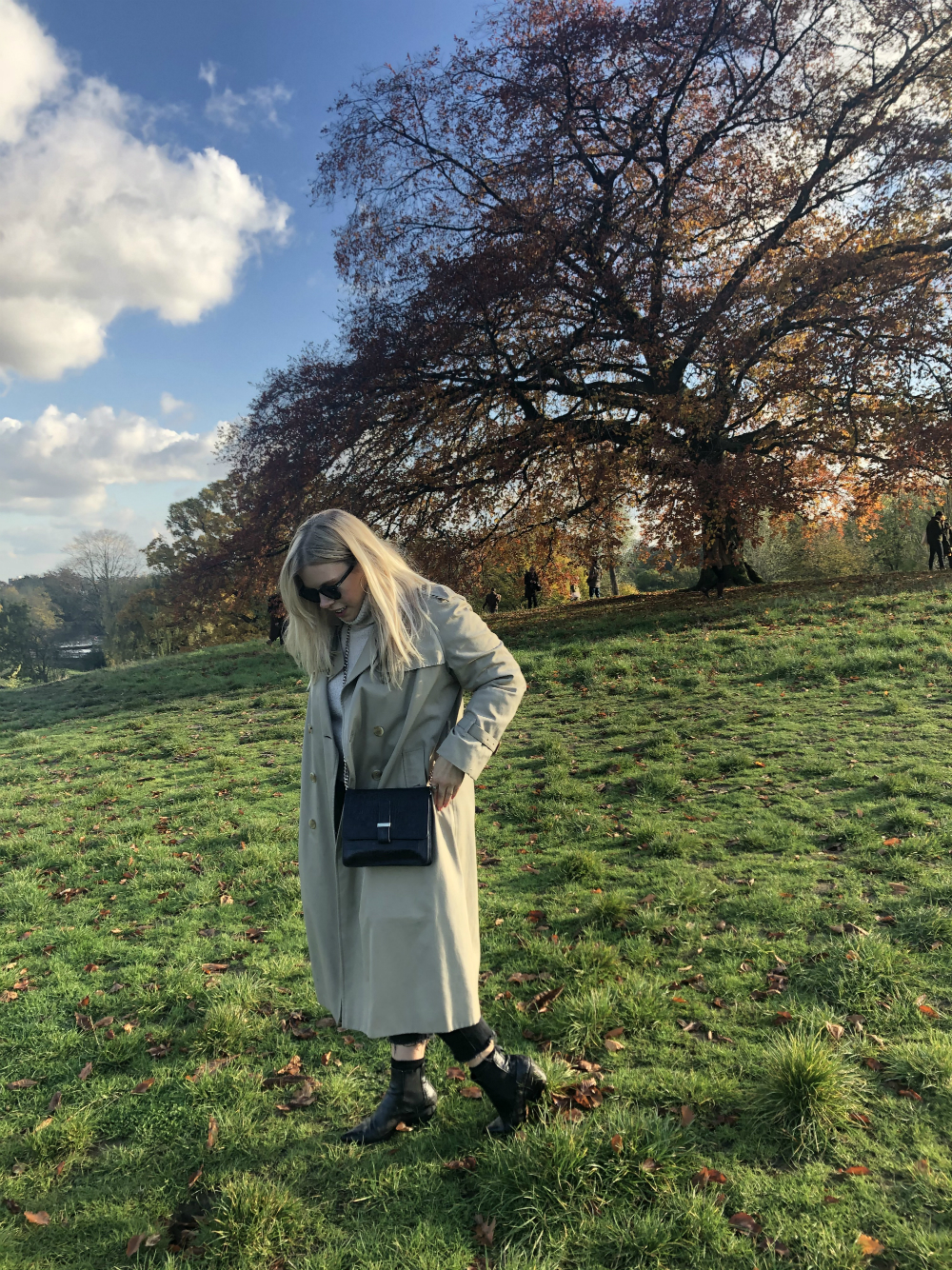Body positivity is everywhere, so why can't I accept my body
From Instagram to big brand campaigns, body positivity is everywhere, so why is it so hard for writer Olivia Foster to accept her body


Celebrity news, beauty, fashion advice, and fascinating features, delivered straight to your inbox!
You are now subscribed
Your newsletter sign-up was successful
From Instagram to big brand campaigns, body positivity is everywhere, so why is it so hard for writer Olivia Foster to accept her body
‘A global pandemic isn’t the time to be thinking about your weight,’ an Instagram post tells me, while a quick look on Facebook points me towards some workouts encouraging me to lean into the lockdown glow-up.
Even in 2020, when the body positive movement has come on leaps and bounds, mixed messages about how we should look, or how we should feel about our bodies, are everywhere. We’re told to be strong, but soft, to love our curves, or to accept that we’ll never love them and get on with it anyway.
For anyone, like myself, who has suffered from issues relating to their weight, these can be compounded at a time when control over our bodies can feel like it’s in short supply. And we only need to look at the recent reaction to Adele posting a picture of her slimmed down figure to know that no matter how far we’re come, weight loss and ‘being thin,’ is still obsessed over and admired.
But to say you don’t always feel happy about your body feels like a taboo I think we should break, afterall, a body image report by the Mental Health Foundation last year found that one in five of us have felt negatively about our bodies in the last 12 months, while a third of those surveyed have felt anxious or depressed about their bodies. And during social distancing it’s thought that these feelings about our body can be exacerbated – as research has uncovered that loneliness is a strong predictor of disordered eating. It seems feeling disconnected from others can make us focus more on body image.

For me the difficultly with accepting my body is, like it is for many others, down to years of conditioning. Thirty years of my life where every ad, person and some friends (yes, really) told me my body wasn’t acceptable. More recently, as curvier women have found their place in the mainstream, thanks to the likes of the Kardashians and campaigns from brands like Fashion Nova, that feeling has changed from one of being unseen, to feeling like a novelty.
How men now react to my body in particular has been a jarring experience. The same curves which have previously seen me be told I that have, 'elephant thighs,' been called, 'fatty,' by a stranger on the tube or be rejected by one man because, ‘I don’t date big girls,’ are now being celebrated by guys who proudly declare, 'I love curvy women!,' as if accepting that women over a size 10 can be attractive is an act of heroism.
Celebrity news, beauty, fashion advice, and fascinating features, delivered straight to your inbox!
Previously, I’ve been breathlessly and inappropriately asked about the size of my bum or my breasts with a sense of clamouring adulation which falls nothing short of fetishization and told that the way I look makes me a ‘real woman.’ Confirming to me that, yes, we do still pit women’s bodies against one another and yes, whatever size you are, there will always be someone who sees you as a loser in a sexual game of one-upmanship.
It makes feeling truly body positive very difficult. I know that a lot of this is internalised, I am by far not the worst off, there are many women who do not have the privileges I have of being white and able bodied. And there are women who are larger than me who are ridiculed, berated and judged for merely existing.
I’m not alone in feeling the way I do. Mia Ford, a 27-year-old building surveyor from London tells me, ‘I feel like women have been told such mixed messages. I’ve struggled with my weight over the years and now I feel like it’s very hard to let go of those feelings. When you’re told there’s something wrong with you from a young age it takes more than a few inspirational Instagram posts to get over it.’
The writer Eva Wiseman put it brilliantly when she called for, ‘body neutrality,’ in a piece written for The Guardian. She said, ‘The impact of enforcing body positivity on people who, under their skin, know there are rational reasons they have sex with the lights off, or fear exercising in public, or click on Instagram links to cosmetic surgeons in Turkey, or have been on diets since they were 12, can feel like two trucks crashing in their throat.’
Part of my problem is that I don’t see myself often, or moreover, I don’t see other people who have my body shape. On Instagram I’ve curated my feed to feature brilliant body confident women like StyleMeSunday, BodyPosiPanda, Ashley James and Iskra Lawrence, who have taught me about loving myself on the good days and bad.

But when it comes to the mainstream media representations of normal bodies are still few and far between. I am not big enough to feel I could be part of the plus-size community and I’m not small enough to feel represented by any traditional modelling campaign.
And while there have certainly been moves in the right direction from the fashion industry; think ASOS' app feature which allows you to see their clothes on a variety of sized models, there is still a long way to go. In my experience, Zara still doesn't seem to be able to accept that some women have breasts, while H&M jeans have little use for me, or most curvy women, past being used as leg warmers.
So what is the answer? I’m certainly not arguing for body negativity. But when women, of so many different shapes and sizes, have been told for so long that there is something wrong with the way we look, be we too big, or too small, we need to have a discourse that allows for people to talk about our bodies in a more measured way – a way that sits between the hugely positive and the depressingly negative.
And in a way that understands that we still have a long way to go until all women feel properly included, represented and seen in fashion, advertising and the media. And that’s about not always putting a positive spin on things, that’s about holding our hands up and saying expecting acceptance from everyone is just another rod against our backs. It’s another thing for us to feel bad about when we inevitably fail. And maybe the only thing we can really hope to strive for in 2020 is body acceptance, whatever shape or size you might be.
* If you are struggling with mental health and body image, these helplines can offer advice: National Centre for Eating Disorders: 0845 838 2040. MIND info line is: 0300 123 3393 for issues relating to Body Dysmorphic Disorder. Anxiety UK Helpline: 08444 775 774.
Maria Coole is a contributing editor on Marie Claire.
Hello Marie Claire readers – you have reached your daily destination. I really hope you’re enjoying our reads and I'm very interested to know what you shared, liked and didn’t like (gah, it happens) by emailing me at: maria.coole@freelance.ti-media.com
But if you fancy finding out who you’re venting to then let me tell you I’m the one on the team that remembers the Spice Girls the first time round. I confidently predicted they’d be a one-hit wonder in the pages of Bliss magazine where I was deputy editor through the second half of the 90s. Having soundly killed any career ambitions in music journalism I’ve managed to keep myself in glow-boosting moisturisers and theatre tickets with a centuries-spanning career in journalism.
Yes, predating t’internet, when 'I’ll fax you' was grunted down a phone with a cord attached to it; when Glastonbury was still accessible by casually going under or over a flimsy fence; when gatecrashing a Foo Fighters aftershow party was easy-peasy-lemon-squeezy and tapping Dave Grohl on the shoulder was... oh sorry I like to ramble.
Originally born and bred in that there Welsh seaside town kindly given a new lease of life by Gavin & Stacey, I started out as a junior writer for the Girl Guides and eventually earned enough Brownie points to move on and have a blast as deputy editor of Bliss, New Woman and editor of People newspaper magazine. I was on the launch team of Look in 2007 - where I stuck around as deputy editor and acting editor for almost ten years - shaping a magazine and website at the forefront of body positivity, mental wellbeing and empowering features. More recently, I’ve been Closer executive editor, assistant editor at the Financial Times’s How To Spend It (yes thanks, no probs with that life skill) and now I’m making my inner fangirl’s dream come true by working on this agenda-setting brand, the one that inspired me to become a journalist when Marie Claire launched back in 1988.
I’m a theatre addict, lover of Marvel franchises, most hard cheeses, all types of trees, half-price Itsu, cats, Dr Who, cherry tomatoes, Curly-Wurly, cats, blueberries, cats, boiled eggs, cats, maxi dresses, cats, Adidas shelltops, cats and their kittens. I’ve never knowingly operated any household white goods and once served Ripples as a main course. And finally, always remember what the late great Nora Ephron said, ‘Everything is copy.’
